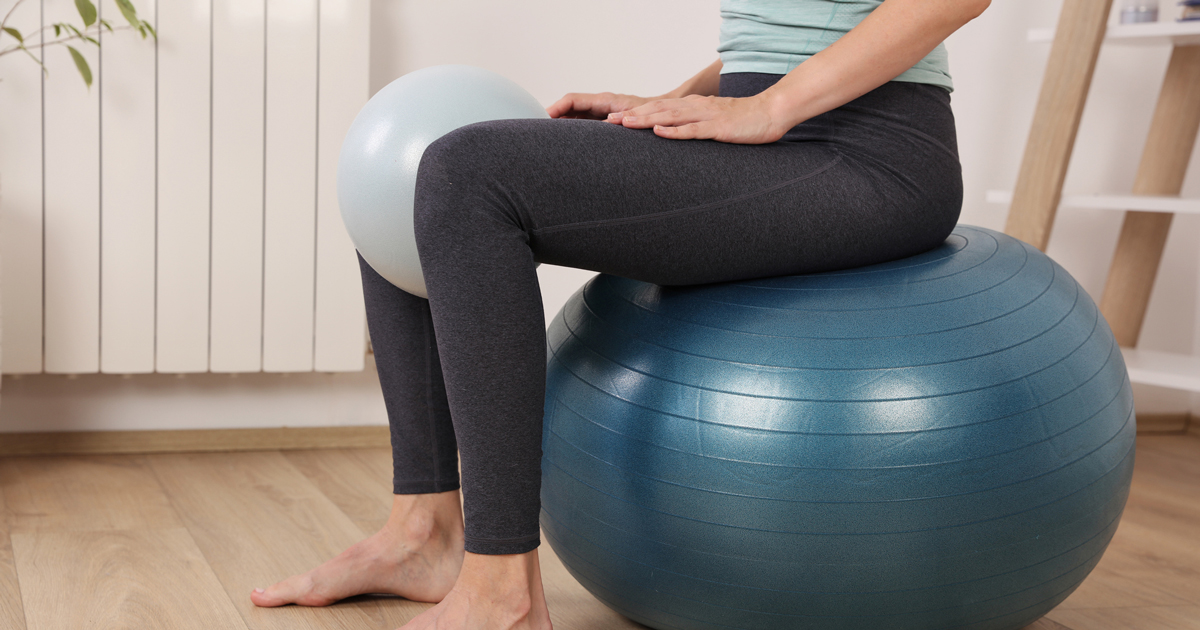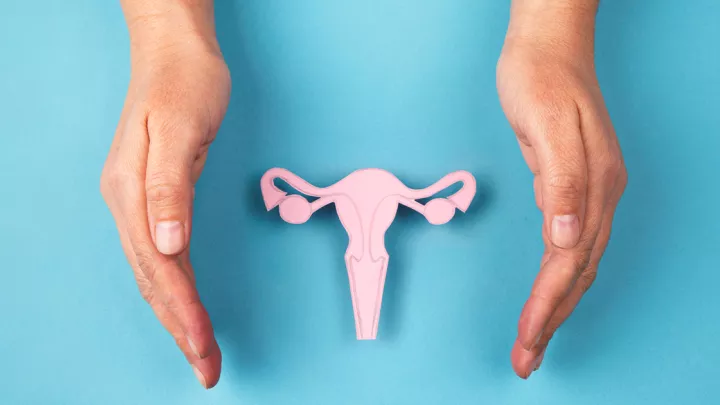Pelvic floor, Kegels and how physical therapy can help

The pelvic floor is an integral part of our body structure. When these muscles function correctly, they act as shock absorbers for our body's entire core. If you think of the pelvis like a house, the pelvic floor muscles are like the foundation, providing just the right support to keep everything in place.
A healthy pelvic floor: Strength, flexibility and coordination
"We look for three things for optimal pelvic floor function: strength, flexibility and coordination," says Elizabeth Hopkins, DPT, Nebraska Medicine pelvic rehab physical therapist. "These muscles need to perform their job to support the bladder, bowel, uterus, vagina, rectum and prostate. They are also important for healthy sexual function."
With proper coordination, strength and flexibility, a person can contract and relax the muscles as needed. If any of these three areas are too loose or too tight, you may start to notice symptoms.
What do pelvic floor problems feel like?
Both women and men can suffer from pelvic floor dysfunction. When not working correctly, pelvic floor problems cause the inability to properly relax, constrict or coordinate the muscles to respond the way they should.
Pelvic floor muscles should not cause pain. People often think weakened muscles only cause pelvic floor issues, but sometimes problems can occur from the muscles being too tight. This is when the muscles are actively contracting, creating a short muscle (hypertonic) or causing structural tightness.
Things that may contribute to pelvic muscle dysfunction include pregnancy, childbirth, prostate cancer treatment, obesity, hysterectomy, chronic constipation, hormone changes after menopause, pelvic trauma, habitual guarding pattern from stress and other conditions.
Symptoms may include:
- Leaking urine or stool when sneezing, coughing, laughing or running
- Loss of bladder or anal muscle control
- Frequent need to urinate or strain to have a bowel movement
- Pelvic pain, such as discomfort during sex or painful urination
- Inability to control flatulence
- Bulging at vaginal opening or sensation of heaviness or aching (prolapse)
- History of irritable bowel syndrome (IBS), interstitial cystitis or recurrent urinary tract infections
How to address pelvic floor problems
If you're experiencing symptoms and suspect a problem, don't ignore it. Although the thought of talking to a doctor about it can be embarrassing, too often, people put off asking for help because they assume it's a normal part of aging, childbirth or menopause. You don't have to struggle with pelvic floor dysfunction – there is help to improve your quality of life.
Your doctor will listen to your symptoms, perform an exam and, if appropriate, order testing to rule out any infections or conditions. Often they will recommend physical therapy to help improve pelvic floor function.
"If you are nervous about getting help or uncomfortable with an exam, ask to come to PT just to have a conversation," says Hopkins. "Once your questions are answered and you understand your options, we'll work within your comfort level to help you. We'll evaluate your symptoms, look at what may be too tight or too loose, then create a treatment plan unique to you."
What about Kegel exercises?
Seeing a doctor is essential to rule out underlying conditions that may be contributing to your symptoms. Kegels can be helpful if they are a good fit for your particular issue and if you are doing them correctly, but they're not a fix for every pelvic floor issue.
"No amount of Kegels will fix the urgency that comes from an infection," says Hopkins. "Not everyone needs them consistently either. So many people who come to see us are not doing them correctly. They're often pushing down or using other muscles instead of pelvic floor muscles. This is why it's important to get an evaluation, so you're assured you're using Kegels correctly and for the right reasons."
What Kegel exercises feel like
When you contract the correct muscles, you'll have a deep layer of muscle that causes a lifting sensation. The surface muscles contract, feeling like the front and the back pull in, puckers and lifts. You'll squeeze and relax, squeeze and hold, then relax for 10 seconds.
"How much you feel depends on your strength level," adds Hopkins. "You should be able to feel where the muscles are and isolate them. No pain should occur. If it ever hurts, you can't feel it or can't localize it, stop doing them and see a physical therapist to help guide you."
If you are doing Kegels and see improvement, continue to do them occasionally to maintain pelvic floor strength. You know they're not working if you don't see improvement, feel pain, or symptoms worsen.
"In PT, pelvic floor exercises like the Kegel are only the first step, says Hopkins. "Once we have your pelvic floor muscles isolated and you're comfortable with Kegels, we can start to integrate core strengthening."
Pelvic floor health during pregnancy and postpartum
If you are concerned about upcoming labor and delivery, your body mechanics during pregnancy or postpartum, PT can help you prepare and face childbirth confidently. PT can do a whole range of things with postpartum rehab to help rebalance the abdominal and pelvic floor muscles. If you have a problem, don't wait until it becomes a bigger problem. If you don't have a problem but want to know how to protect your body and prep for pregnancy and postpartum, PT can help.
Pelvic floor dysfunction doesn't have to rule your life
"If you're experiencing pelvic pain, pain during urination or sexual intercourse or unable to control urine leakage or bowel function, please seek out PT," advises Hopkins. "Even if you think it's normal for you, there are things we can do to help. We are well trained to handle all bowel, bladder and pelvic floor sexual issues for all people. We are well equipped to help you eliminate symptoms to enhance your quality of life. You are your pelvic floor advocate. If you're having symptoms, reach out for help."
If you'd like to make an appointment, please call 800.922.0000.






